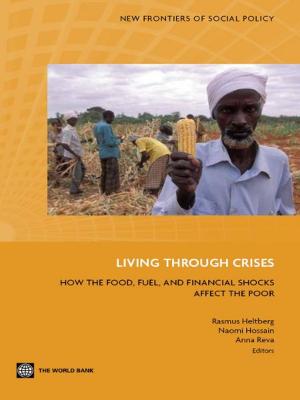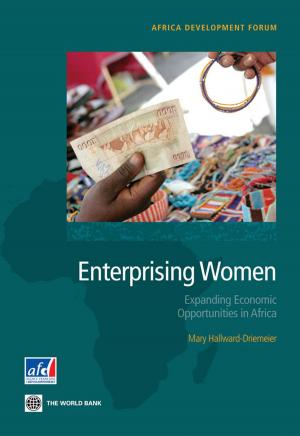The Day After Tomorrow: A Handbook On The Future Of Economic Policy In The Developing World
Business & Finance, Economics, Economic Development| Author: | Otaviano Canuto Marcelo M. Giugale | ISBN: | 9780821385463 |
| Publisher: | World Bank | Publication: | September 17, 2010 |
| Imprint: | Language: | English |
| Author: | Otaviano Canuto Marcelo M. Giugale |
| ISBN: | 9780821385463 |
| Publisher: | World Bank |
| Publication: | September 17, 2010 |
| Imprint: | |
| Language: | English |
The global financial crisis of 200809 did not just change the global economic order. It also changed the way we think about that order. Principles and practices that were once accepted wisdom are now in doubt or discredited. New fundamental questions opened. And the search for answers has barely begun. For the developing world that conceptual uncertainty is particularly uncomfortablethrough a mix of good policies and good luck they had begun to achieve real progress. Will all that now be derailed? What does the new horizon bring to them? Can they find new policy ideas that will turn the shock of the crisis into a final run toward developed status? How does the future look when seen from various geographic regions?Those are the kind of questions that we asked in the summer of 2010 to some 40 development professionals working at the World Bank. This book is an unfiltered collection of their views. As seasoned practitioners in the leading development institution they have a unique perspective from which to visualize we would dare say to sense what may be coming. Some of them look at the big picture of the role that the developing world is about to play and how it will play it. Others walk us through the conceptual links around specific issues that will affect that worldsay the likely evolution of macro-financial regulation. And others take us to continents and countries teach us about their realities and tell us how things will differ in the coming years. Put together they paint a picture of reasoned optimism.
The global financial crisis of 200809 did not just change the global economic order. It also changed the way we think about that order. Principles and practices that were once accepted wisdom are now in doubt or discredited. New fundamental questions opened. And the search for answers has barely begun. For the developing world that conceptual uncertainty is particularly uncomfortablethrough a mix of good policies and good luck they had begun to achieve real progress. Will all that now be derailed? What does the new horizon bring to them? Can they find new policy ideas that will turn the shock of the crisis into a final run toward developed status? How does the future look when seen from various geographic regions?Those are the kind of questions that we asked in the summer of 2010 to some 40 development professionals working at the World Bank. This book is an unfiltered collection of their views. As seasoned practitioners in the leading development institution they have a unique perspective from which to visualize we would dare say to sense what may be coming. Some of them look at the big picture of the role that the developing world is about to play and how it will play it. Others walk us through the conceptual links around specific issues that will affect that worldsay the likely evolution of macro-financial regulation. And others take us to continents and countries teach us about their realities and tell us how things will differ in the coming years. Put together they paint a picture of reasoned optimism.















